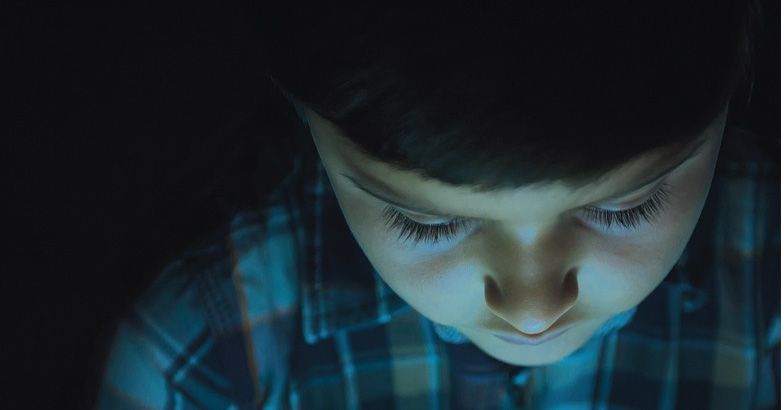|
Blue light is taking a toll on your child’s eye health without you even realizing. Amardeep Wahi was a happy, healthy 15-year-old, until he began getting headaches. His mother realized that he wasn’t getting enough sleep, because when she’d knock on his door to say ‘Goodnight’, he’d be on his phone or tab. The culprit, says doctors, is blue light. But what’s the deal with it anyway? The sun emits it, after all. True, and that’s for some part of the day. But when your child is on various screens through the day, there’s a possibility that it’ll affect him adversely.
Blue Light Banter Besides the sun, blue light can also be emitted in the form of HEV (High Energy Visible) light by electronic gadgets such as tablets, smartphones, laptops, e-readers, or even TV sets. It’s the sort of light that brings out the clarity in your TV set or mobile phone. But its flickering, glaring effect, have both short- and long-term effects on the eyes. Blue light cannot be blocked easily by the human eye, unlike UV rays. So, it penetrates all the way to the retina with ease. Children’s eyes are comparatively sensitive and vulnerable. Over-exposure (for over an hour, especially if there are no breaks in between) can adversely affect a child’s physical and psychological behavior. Effect Defect Naturally, increased screen time means overexposure to blue light, resulting in what is known as digital eye strain. Some of the immediate effects include teary or red eyes and the lack of concentration and sleep. Over a period, there may be a change in psychological attitude as well (listlessness and disinterest). When children focus on the screen, they set aside everything else, and are sucked into the game or social media network. Excessive convergence of eye muscles resulting strain in eyes. It also reduces blinking that leads to dry eyes. Too much blue light exposure can also give your child sleepless nights—just like the ones Amardeep had. It affects levels of the sleep-inducing hormone known as melatonin. Sleep disruption, in turn, can lead to exhaustion and fatigue, which can make your child unwell. However, from a long-term perspective, it may lead to juvenile macular degeneration or even partial blindness. Things usually become worse for children who already have poor eyesight or those with cataract. Game On Dealing constantly with devices will soon leave your child and you exhausted—you’ll be exhausted from all the nagging! Obviously, there’s no way we can completely avoid digital devices or ban them. But, there are ways to reduce the negative impacts. Tell your child to be ‘smart’ while using smartphones. Advise him to take frequent breaks and hold the phone at a ‘safe distance’ from the eyes—at arm’s length. There is another aspect to focus on: find out why your child is always on his phone. Is he feeling left out in school or on the playground? Is he making poor online content choices? You can make a No-Phone-to-Bed rule that everyone in the family follows. Parents set the best examples, so do make good lifestyle choices yourself. But if your child does have eye irritation do take him to an ophthalmologist and get him protective lenses which are able to better filter blue light than the naked eye. |

